#history creator
Text
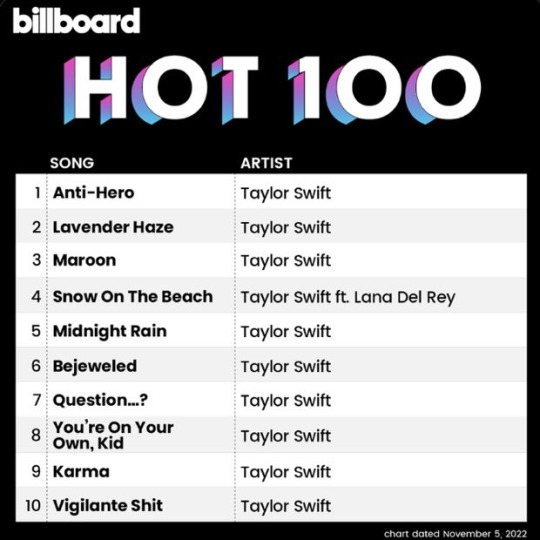
She created HISTORY with this
#taylor swift#swift#taylor#t swift#debut#1989#lover#folklore#midnights#anti hero#lavender haze#maroon#bejeweled#question...?#karmavi#vigilante shit#charts#the music industry#snow on the beach#history creator#1989 tv#reputation#red#speak now#fearless#hot 100#billboard
2 notes
·
View notes
Text

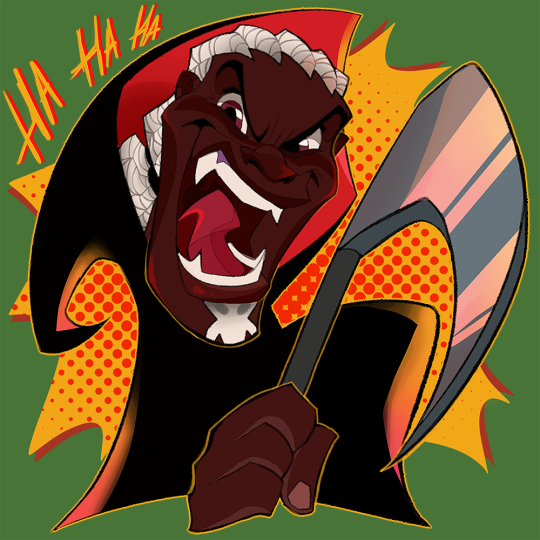
Black History Month Art Challenge
DAY 24: Grim - The Grim Adventures of Billy & Mandy (+ human form)
Bonus doodle:
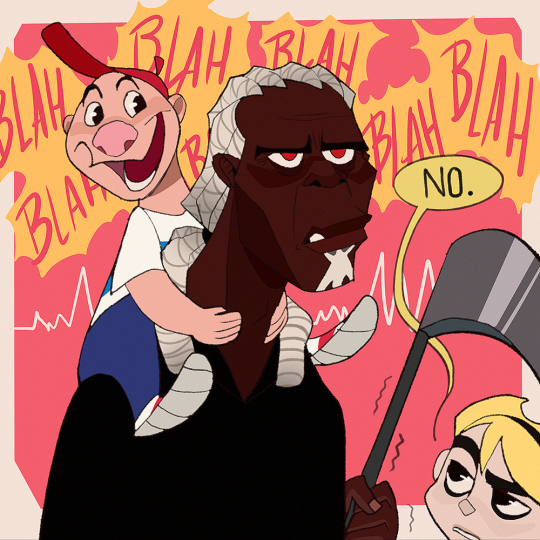
#bhm#black history month#the grim adventures of billy & mandy#grim#gijinka#do not speak to me of that white abomination of a human form grim was given#the creators already said they didnt make him look black because the optics of a black man being owned by two white kids was NO BUENO#but the man IS BLACK#my art#my bhm art
1K notes
·
View notes
Text
Non-offensive Historical terms for Black people in historical fiction
@pleasespellchimerical asked:
So writing historical fiction, with a white POV character. I'm not sure how to address race in the narration. I do have a Black main character, and I feel like it'd feel out of place to have the narrator refer to her as 'Black', that being a more modern term. Not sure how to do this without dipping into common historical terms that are considered racist today. Thoughts on how to handle this delicately, not pull readers out of the narrative? (fwiw, the POV character has a lot of respect for the Black character. The narration should show this)
There are non-offensive terms you can use, even in historical fiction. We can absolutely refer to Black people without slurs, and if slurs is all one can come up with, it’s time to go back to the drawing board. I cannot say which terms are best for your piece without knowing the time period, but hopefully the list below helps.
Historical terms to use for Black people (non-offensive)
African American documented as early as 1782 (documented in an ad in the Pennsylvania Journal). Note the identity isn’t accurate for non-American Black people.
African could refer to African people or “from 1722 as ‘of or pertaining to black Americans.’”
The place of origin could also be used. For example, “a Nigerian woman”
Africo-American documented as early as 1788.
People of Color documented as early as 1796 (with specific contexts, usually mixed people)
Afro American documented as early as 1817, 1831 (depending on source)
Black American documented as early as 1831
Black was used in Old English to refer to dark-skinned people. Black was not capitalized until recent years, so “She was a young black woman.” would make sense to say, though “She was a young Black woman.” is the better standard today, although not universally adopted. I personally prefer it capitalized.
Moor was used as early as the late 1400s for North African people, but had a somewhat flexible use where anyone visibly Black / Of African descent or the Afro Diaspora might be referred to or assumed as a Moor. Note, it has other meanings too, such as referring to Muslim people, but that doesn’t mean the person using it is going by the dictionary definition. Not really the way to go today, but okay in a historical setting (in my opinion).
Biracial (1860s), mixed race (1872), multiracial (1903) and multicultural (1940s) are also terms to refer to people of two or more races.
Occupation + description. Throughout history, many people have been referred to as their occupation. For example, the Carpenter, The Baker, the Blacksmith. Here’s an example of how you might go about using occupation and traits to identify a Black character in history. Here’s an example I came up with on the fly.
“You should go by Jerry’s. He’s the best blacksmith this town’s ever seen. Ya know, the real tall, dark-skinned, curly haired fellow. Family’s come here from Liberia.”
Offensive and less-sensitive terms for Black people
Blacks was used in plural more, but this is generally offensive today (Even writing it gives me **Thee ick*)
Colored was mostly used post-civil war until the mid 20th century, when it became unacceptable. This is not to be conflated with the South African Coloured ethnic group.
Negro/Negroes were also used as early as the 1550s. Capitalization became common in the early 20th century. I'm sure you know it is offensive today, though, admittedly, was not generally seen as such until around the 1960s, when Black replaced it. It does have its contexts, such as the trope “The Magical Negro” but going around using the term or calling someone that today is a lot different.
Mulatto referred to mixed people, generally Black and white, and is offensive today.
The N-word, in all its forms, is explicitly a slur, and there is absolutely no need to use it, especially in a casual manner, in your story. We’ve written about handling the N-word and alluding to it “if need be” but there are other ways to show racism and tension without dropping the word willy-nilly.
Deciding what to use, a modern perspective
I’m in favor of authors relying on the less offensive, more acceptable terms. Particularly, authors outside of the race. Seldom use the offensive terms except from actual direct quotes.
You do not have to use those offensive terms or could at least avoid using them in excess. I know quite famous stories do, but that doesn’t mean we have to so eagerly go that route today. Honestly, from teachers to school, and fellow non-Black students, it’s the modern day glee that people seem to get when they “get a chance to say it” that makes it worse and also makes me not want to give people the chance.
It goes back to historical accuracy only counting the most for an “authentic experience” when it means being able to use offensive terms or exclude BIPOC from stories. We’ve got to ask ourselves why we want to plaster certain words everywhere for the sake of accuracy when there are other just as accurate, acceptable words to use that hurt less people.
Disclaimer: Opinions may vary on these matters. But just because someone from the group cosigns something by stating they’re not offended by it, doesn’t mean a whole lot of others are okay with it and their perspectives are now invalid! Also, of course, how one handles the use of these words as a Black person has a different connotation and freedom on how they use them.
~Mod Colette
The colonial context
Since no country was mentioned, I’m going to add a bit about the vocabulary surrounding Black people during slavery, especially in the Caribbean. Although, Colette adds, if your Black characters are slaves, this begs the question why we always gotta be slaves.
At the time, there were words used to describe people based on the percentage of Black blood they had. Those are words you may find during your searches but I advise you not to use them. As you will realize if you dive a bit into this system, it looks like a classifying table. At the time, people were trying to lighten their descent and those words were used for some as a sort of rank. Louisiana being French for a time, those expressions were also seen there until the end of the 19th century.
The fractions I use were the number of Black ancestors someone had to have to be called accordingly.
Short-list here :
½ : mûlatre or mulatto
¼ or ⅛ : quarteron or métis (depending on the island, I’m thinking about Saint-Domingue, Martinique and Guadeloupe)
1/16 : mamelouk
¾ : griffe or capre
⅞ : sacatra
In Saint-Domingue, it could go down to 1/64, where people were considered sang-mêlé (mixed blood for literal translation, but “HP and the Half-Blood Prince” is translated “HP et le Prince de Sang-Mêlé” in French, so I guess this is another translation possibility).
-Lydie
Use the 3rd person narrative to your advantage
If you are intent on illustrating historical changes in terminology consider something as simple as showing the contrast between using “black” for first person character narration, but “Black” for 3rd person narrator omniscient.
-Marika
Add a disclaimer
I liked how this was addressed in the new American Girl books
it’s set in Harlem in the 1920’s and there’s a paragraph at the beginning that says “this book uses the common language of the time period and it’s not appropriate to use now”
-SK
More reading:
NYT: Use of ‘African-American’ Dates to Nation’s Early Days
The Etymology dictionary - great resource for historical fiction
Wikipedia: Person of Color
2K notes
·
View notes
Text
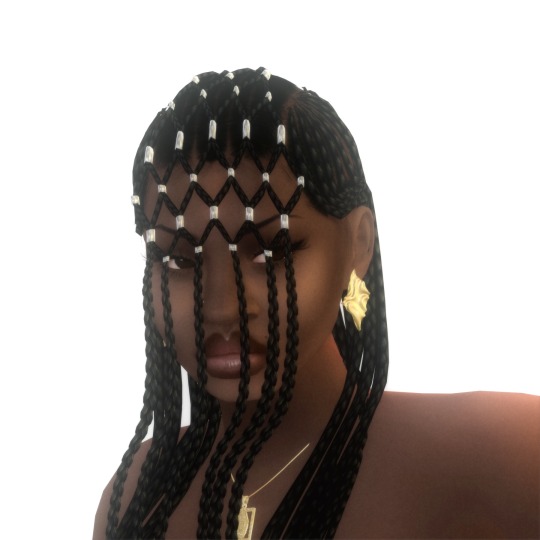
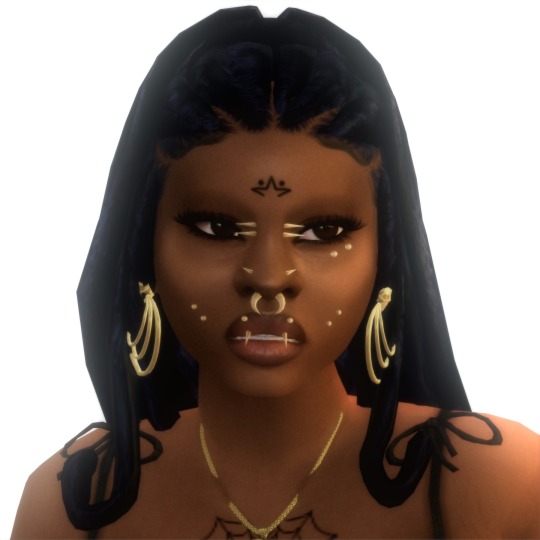
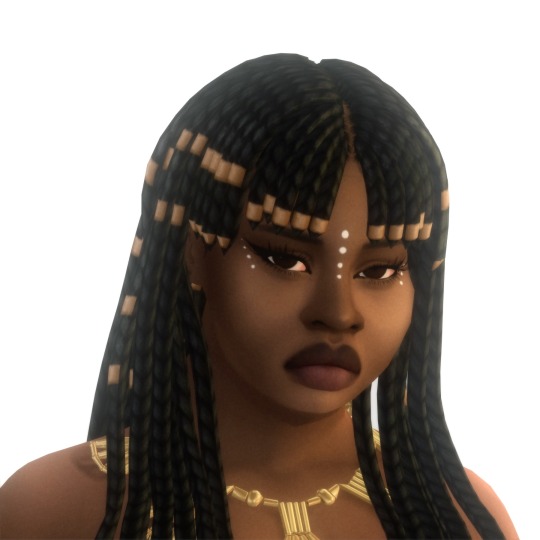
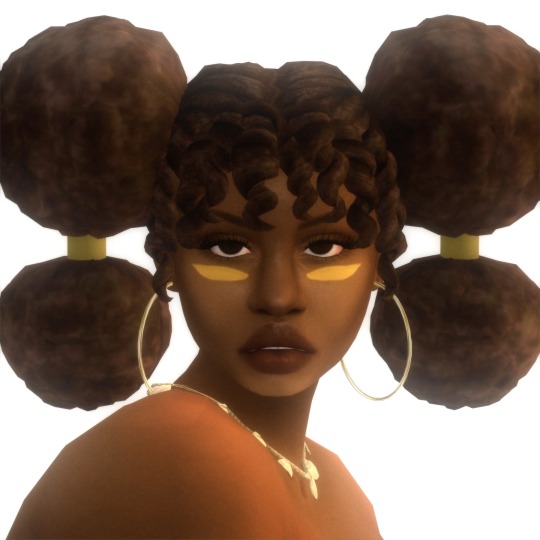
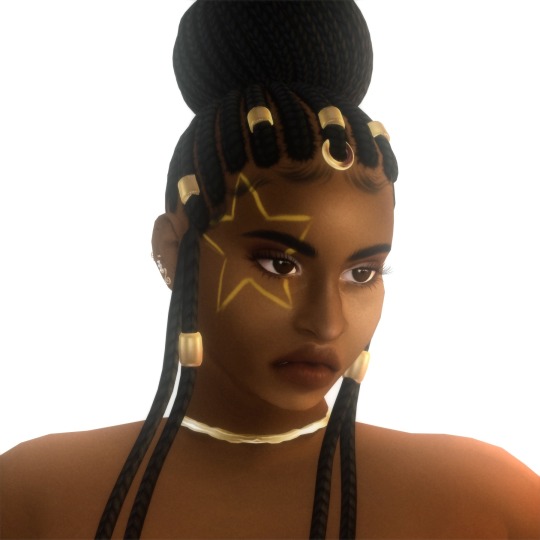
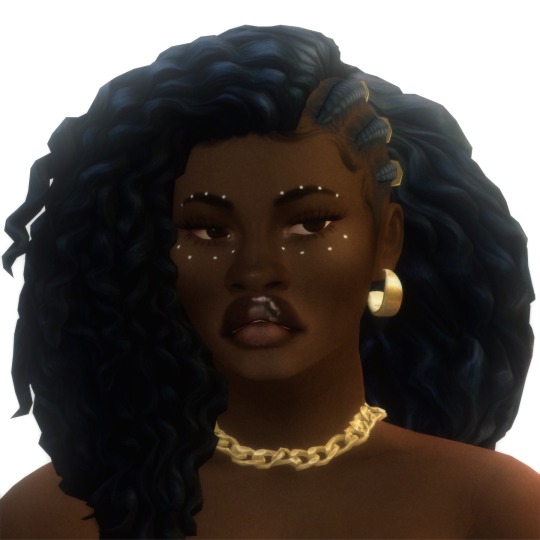
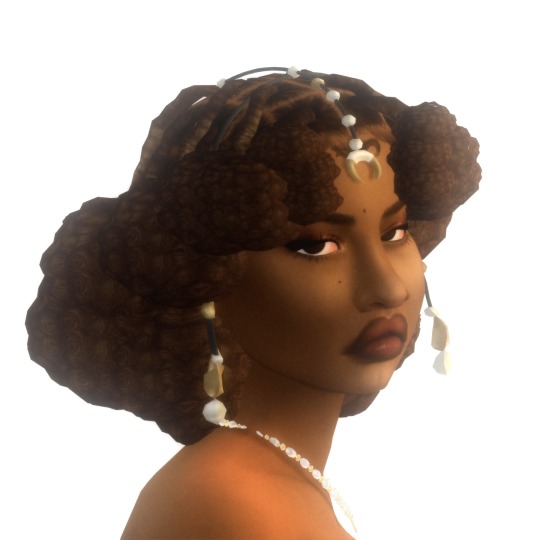
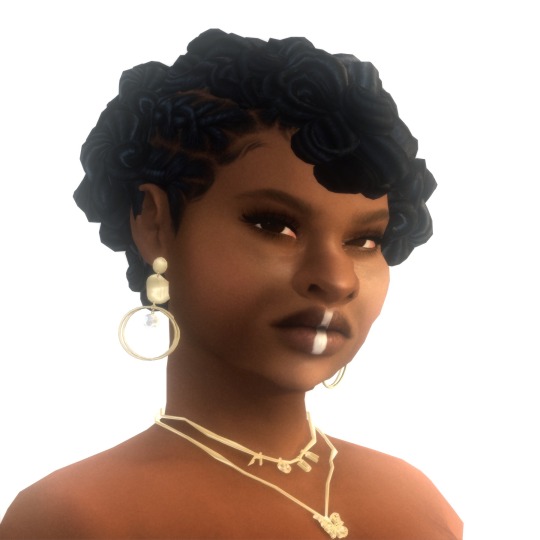
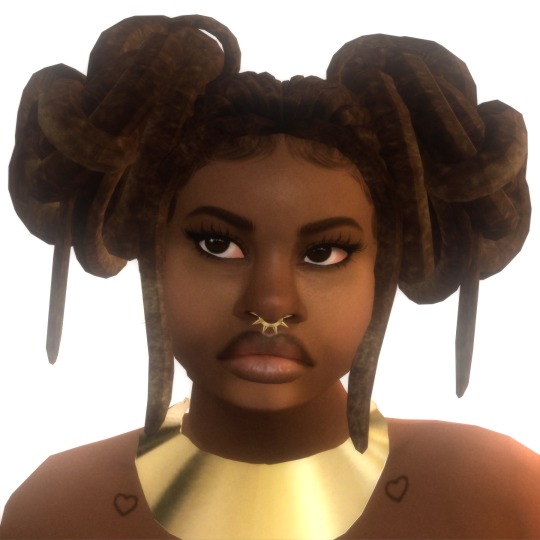
afrofuturism🪐
☆ one ~ solange hair by darknightt (tsr warning) ☆ two ~ loretta hair by @simtric ☆ three ~ bahati braids by @sheabuttyr ☆ four ~ isonoe hair by octetsica ☆ five ~ binah braids by @sheabuttyr ☆ six ~ cornrows & curls hair by @leeleesims1 ☆ seven ~ indie hair by @sashima ☆ eight ~ loc petals by @shespeakssimlish ☆ nine ~ mnemosyne hair by octetsica ☆
mini dedication essay to black simmers and ts4 creators below! pls read if you have the chance! <3
this edit is a small homage to afrofuturism and the various unique black hairstyles (and especially the black creators of most of these hairs) that i have downloaded and admired over the years! some of these are old and some of these are new.
to me, afrofuturism means constantly honoring/reclaiming/challenging the past while constantly creating/dreaming of a better society/world/future. a society/world/future that embraces and empowers all of our differences, ingenuity, aspirations, and unique lived/cultural experiences. a society/world/future that does not limit us through the various systems of marginalization and oppression (racism, homophobia, transphobia, fatphobia, sexism, xenophobia, ableism, classism, colorism, etc.) that often affects how we, as black people, live today.
blackness is so diverse and intricate yet it's always been a struggle to find my culture within a game that's known for being so limiting, bland, and extremely eurocentric when it comes to hairstyles, clothing, food traditions/events, etc. black simmers have always had to figure out how to make this game more inclusive and make it resemble either more like how our ancestors lived, how our current lives are, or how we would want our lives (and even our children's lives) to look like in the future no matter how dystopian the real world look and feel now. fortunately, these hairs and their uniqueness bring a huge sense of culture and style to this game. they have always inspired me and made me feel extremely proud to a part of the lovely african diaspora (and the ever-growing black simmer community).
in a way, being a black simmer and cc creator usually means that we are often digitally creating our own worlds as afrofuturists to varying degrees (whether we know it or not) every time we open our game, make our sims, make houses, and/or make black cultural cc. also, now i know that cc making is not easy to do and is extremely time-consuming so this post is also just me giving all black cc creators especially those who create for free their well-deserved flowers! here are some other black cc creators who created cc that have greatly impacted my game since i first started playing sims 4: @/leeleesims1 @/simtric @/hi-land @/yuyulie @/sims4bradshaw @/ebonixsims @/xmiramira @/sheabuttyr @/qwertysims @/oplerims @/sleepingsims @/shespeakssimlish and so many more im forgetting probably (im too shy rn to tag ppl but i greatly appreciate y’all fr i hope y’all telepathically get this message somehow 😭).
last but not least, i am hoping that this inspires somebody to keep creating or start creating regardless of what they think their skill level is! somebody will absolutely fall in love with your work and/or your art/work will 100% change someone's game forever <333
#ts4#sims 4#the sims 4#black simblr#black simmer#ts4 edit#🪐#🪐 black hair#soleil jones#xolani souza de oliveira#angela evans#leona morrison#chantelle diang#ayesha solomon#nylah rivers#nykhor chantelle diang#dove adeyemi#something to end black history month with!#i really hope my essay make sense 😭😭😭#i planned to this last year but hated the pictures i took so i scraped it and redid it#i couldn’t thank enough to all the black cc creators before me and hope to help/inspire new black cc creators 🙏🏾#this is also kinda the updated version of my for the culture post…i made sure to include some familiar (but updated) faces 😭☝🏾💗🙈
782 notes
·
View notes
Text
The Jaws Effect and what it means for media representation
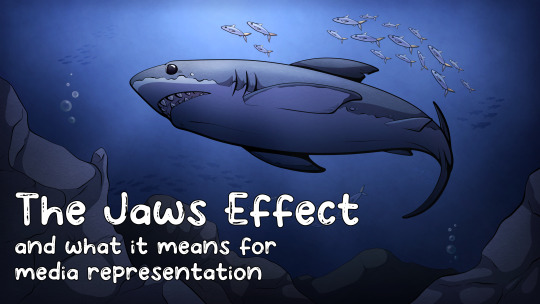
The Jaws Effect is the name of a phenomenon that described the panic and fear that sprang up around sharks, fuelled by Steven Spielberg's movie, Jaws. While the fear of sharks and other marine predators had always been a thing, Jaws launched the fear of sharks, and Great White Sharks in particular, to new (and mostly unfounded) heights. Most people will never encounter a real-life shark and so their only knowledge about the creatures come from movies and other forms of entertainment. Entertainment that largely portrayed them as mindless, unfeeling killing machines. After Jaws, sharks became a staple in the creature-feature genre of movies, which only perpetuated the idea of sharks as dangerous monsters even further, reigniting and reconfirming the beliefs the public held about them in the process. These ideas about sharks are, of course, not true, but the misconception and fear has had a real, observable impacts on shark populations, shark conservation efforts and even laws and legislations surrounding sharks and shark conservation around the world.
Ok but Cy, this is a blog about disability and disabled representation, what do sharks have to do with anything you talk about? Well, Because The Jaws Effect is just one of many examples that shows how massive of an impact representation in the media can have, for better or for worse, especially when talking about subjects the public generally knows very little about.
This conversation is not unique to disability representation, nearly every person I've seen who's talked about how to write and design characters from any minority brings it up eventually, but the media we consume, the movies we watch, the books we read can all have big impacts on people's perceptions on those topics. When talking about disability specifically, it's an unfortunate reality that not many people know all that much about us, and so, much like sharks, for many, their only real exposure to disabled people is through the media they consume.
If you don't know anyone in a wheelchair, and your only knowledge of life as a wheelchair user comes from books and movies like Me Before You, of course you're going to (spoiler) come away thinking that life in a wheelchair is horrible and death is better than living like that. If you don't know any DID Systems and your only exposure to a condition like that is through movies like Split (and honestly, a number of other horror movies and crime shows) of course you'll think people with DID are unstable monsters who could become violent any moment. If your only exposure to autistic people is Music, then it's not shocking that you might think Autistic people are "trapped in their own minds," completely unaware of the world around them and lacking any kind of agency. As much as I'd like to be able to say these are "just movies" or "just books," and that if we don't like them, we can just not watch them, they all had an impact on the real world and real people's perceptions of the disabilities they depicted, as do the many, many smaller examples of bad representation.
This is why I personally spend so much time focused on the portrayal of disability in the media, why so much of my content is focused on creating resources for creators to represent us better, and why I think writers, artists and other types of creators should care about the representation they include.
Unfortunately, people believing misinformation and stereotypes, while annoying, isn't the worst of the impacts bad rep can have. If a stereotype is prevalent enough, and enough people believe it, it can both put us in harms way and cause us to loose access to things we desperately need and things designed to help us. One really common example of this is when movies and TV shows show a character getting up out of their wheelchair, and use this as proof that the person is faking being disabled. However, in reality, there are many disabilities that might mean someone has to use a wheelchair, even if they can still walk a little bit or stand up. The stereotype of someone standing up from their chair being a fake, especially when it's reinforced over and over again in the media, leads non-disabled people to believe that anyone who stands up from their wheelchair is faking, and results in a lot of real disabled people being harassed and denied things like access to disabled parking, toilets and other accessible spaces. There were even a few cases of people reporting those they see get out of their wheelchairs to Centrelink (The Australian "welfare" department, for those not familiar) as frauds, and while these investigations don't usually go far before someone realises what's happened, it has, on occasion, resulted in people loosing the income they depend on to survive, even temporarily.
But the impact of representation, of course, can go both ways.
I was in high school when the first How To Train Your Dragon movie came out, and at the time, I didn't really like people being able to see that I was a leg amputee because I was sick of kids in particular staring, pointing at me, asking their parents "what's wrong with them?" or asking me directly, "what's wrong with your legs?". I wore long skirts and big, bulky tracksuit pants to keep my legs covered, something that became dangerous in the hot Australian summer, but I didn't care.
But the impact of How to Train Your Dragon came in two ways. The first, was that it was one of the first times I'd seen an amputee (or rather, multiple amputees) who didn't keep their prosthetics covered or hidden, and it gave me the little boost in confidence I needed to do that myself and wear clothing that was more comfortable and functional. And second, the comments from children changed, albeit slightly, but enough that it was noticeable. The questions and comments went from "what's wrong with you?" to "oh cool, your legs are like Hiccup's!" I even had one little girl ask me once if I had a pet night fury. They went from being scared of me and my legs, or at the very least concerned for me, to genuinely curious and impressed. While reactions like that did become less and less common over time, they didn't fully go away either. Even today, I occasionally get young kids asking me why I have legs like hiccup. A friend of mine who was born with one arm shorter than the other and without fingers on that side had a similar experience with the movie Finding Nemo. Her disability was a bit more complex than what I described here, and she always found it hard to explain "what happened" to small children, however, after Finding Nemo came out, she was able to simply tell kids "this is my lucky fin, like what nemo has!" and that was enough to take her from someone "scary" to these kids to someone like their favourite characters.
Of course, it's much easier to see the impact positive representation can have on people's perceptions when we're talking about kids media, but it's not exclusive to it either.
When it comes to a minority like the disabled community who are so thoroughly misunderstood by the wider public, misinformation can and does spread easily. What people see and read in the media they consume plays a big roll in how people perceive the real people attached to the stereotypes. We often hear people say "Fiction imitates life" but the reverse can and often is also true, life can imitate and be influenced by fiction, and those of us creating should be mindful of this, especially when we're talking about a group of vulnerable people.
[Thumbnail ID: An illustration of a Great White Shark swimming near the rocky bottom of the ocean, surrounded by silver fish. In the bottom left corner of the image is "The Jaws Effect and what it means for media representation" in big, white bubble text. /End ID]
#Writing disability with Cy Cyborg#Disability 101#Long Post#Disability#Disabled#Disability Representation#Writing Disability#Writing#Writeblr#Authors#Creators#Writing Advice#Disabled Characters#Disability History#On Writing#Disability in Media
860 notes
·
View notes
Text
Puppet History season 1: cute lil puppet teaches his pals about weird events throughout history
Puppet History season 5: Ryan fistfights an evil hologram who’s trying to make a skin-suit out of him, eventually yeets said hologram through a window, and wishes for a crafty genie to save The Professor from being obliterated by the meteor that killed the dinosaurs and bring him back to the present so he can make amends for trying to kill the lil guy
#puppet history#puppet history spoilers#watcher#tw: violence#tw: death#ghoul boys#insert tyler the creator 'unfollow me now' tweet here#the RELIEF i felt when this ep ended
4K notes
·
View notes
Text

DARTE77 - SHIRT TIED AROUND WAIST SHIRT
All credits goes to @darte77! Original here
Top for For YA-A Males
Catagories: Everyday, Formal, Athletic, Career, Outerwear
VERY HIGH POLY : 11.3k
2 Swatches: the jacket has 2 different textures. cloth and denim
Fully Recolorable: 4 channels
Custom thumbnail
includes All Morphs, All LODS and is disabled for random
swatches + color channel breakdown under the cut
Converted by @elitisim
TAGGING: @pis3update, @wanderingsimsfinds, @sssvitlanz, @kpccfinds
[DOWNLOAD 2048x] [DOWNLOAD 1024x]
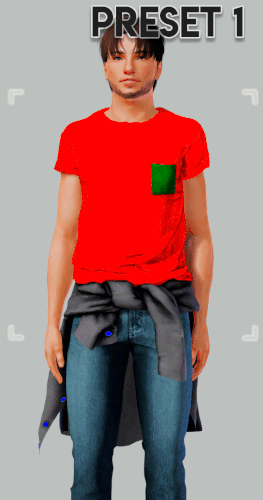
Cloth Texture Tied Jacket
Channel 1: Shirt
Channel2: Tied Jacket
Channel 3: Shirt Pocket
Channel 4: Buttons
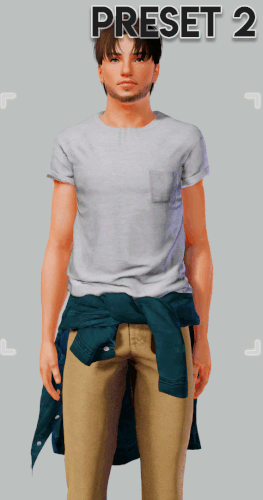
Preset 2: Denim/Jean Jacket Texture Tied Jacket
Channel 1: Shirt
Channel 2: Denim Tied Jacket Channel
3: Shirt Pocket Channel
4: Buttons
#ts3cc#s3cc#ts3 cc#ts3 download#ts3#s3 cc#ts3 dl#s3 dl#sims 3#DARTE77#4t3#sims3cc#ts4 conversion#Darte's probably sick of me tagging them so the the next thing will be some female CC from a different creator#unless i figure out how I wanna do my black history month surprise thing#which i guess isn't a surprise anymore but i don't think anyone actually reads my tags anyways so 🤷🏾♀️#[MINE]#elite posts
390 notes
·
View notes
Text

Aqueduc Saint-Clément, Montpellier by sir20
#original photographers#photographers on tumblr#photography#cityscape#architecture#sir20#photographie#fotografía#fotografia#fotografie#original photography#artists on tumblr#creators on tumblr#fine art photography#urban landscape#urban#historical#history#roman#aqueduct#winter#reflection#montpellier#occitanie#france#europe#architectural#architecture photography#ancient architecture#cityscapes
240 notes
·
View notes
Text
Friday, February 9.
Chenayder.
We've got someone you'd like to meet, and she goes by the name of Chenayder. There's a few things to know: she's a high school student, aged 17. She makes lofi bedroom indie pop. Her sounds are dreamy, nostalgic, immersive. She likes K-pop. And, best of all, she likes sandwiches. Well, what are the chances.
Today of all days she premiers her new single, For One Last Time. Go listen. Then get yourself a sandwich.
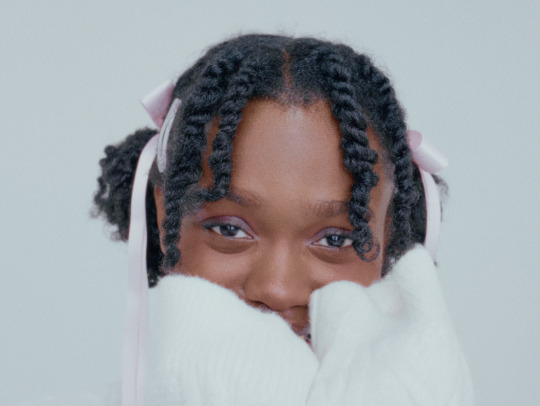
#today on tumblr#alt rnb#indie#tyler the creator#black artists on tumblr#goodbye#music#bhm#black history month#rnb#chenayder
188 notes
·
View notes
Text
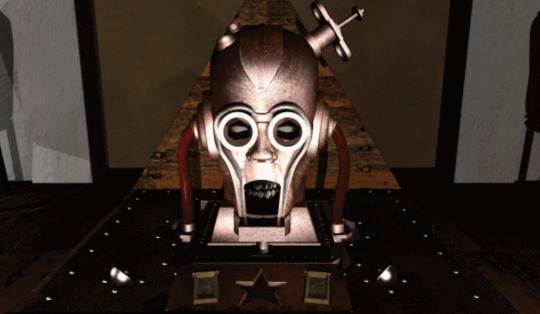





Drowned God 1996
#a personal recommendation#the lore behind this game and creator are messed up#but so fascinating#I am on the side of Harry didn’t kill his wife and himself and they were murdered#look up the game / history if you haven’t heard of it#definitely an incredible watch / read#nexpo on YouTube made a good vid about Harry and his wife#y2k#y2k aesthetic#y2k style#y2k nostalgia#y2k icons#2000s web#old web#2000s#early 2000s#2000s internet#1990s nostalgia#90s computers#90s games#point and click
373 notes
·
View notes
Text
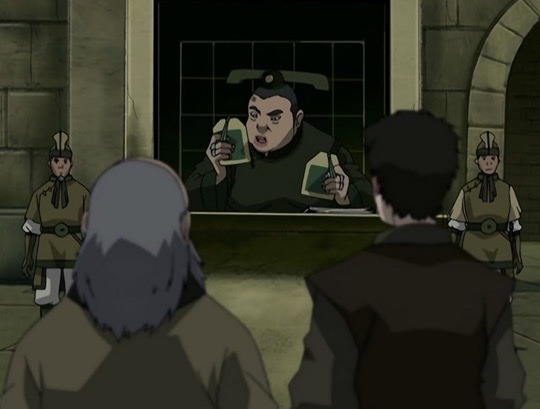

Zuko uses a last name while in Ba Sing Se, his forged passport says 土國護照 洪禮 "Earth Kingdom passport, Hong Li"
#atla#avatar the last airbender#zuko#avatar#atla zuko#avatar creator#avatar zuko#fire lord zuko#the legend of aang#aang#katara#iroh#ba sing se#avatar history#avatar facts#avatar culture#prince zuko
386 notes
·
View notes
Text

Today in Hip Hop History:
Tyler, The Creator released his debut studio album Goblin May 10, 2011
#today in hip hop history#todayinhiphophistory#hiphop#hip-hop#hip hop#hip hop music#hip hop history#music#history#hip hop culture#music history#tyler the creator#goblin#album#emcee#mc#rap#rapper#producer#music producer#odd future#ofwgkta#2011
105 notes
·
View notes
Text

Martin Luther King Jr. Memorial Library
Washington, DC
July 30, 2022
#mine#originial photographers#architecture#miesvanderrohe#international style#mlk#martin luther king jr#traveljournal#travelphotography#art#design#journaling#creators on tumblr#culture#books libraries#travel#booklover#library#history#science#coffee#study#work aesthetic#aesthetic
2K notes
·
View notes
Text

duomo di milano, italy ⋅ ph. maik monuments
#duomo di milano#italy#europe#travel#view#sculpture#art#aesthetic#archtitecture#photo#photograph#photography#photographer#creator#maik monuments#beauty#church#cathedral#ornate#history#inspo#inspiration#insta#instagram#twitter#tumblr#pinterest#blog#discover#create
204 notes
·
View notes
Text
Disability Tropes: The disabling change of heart

When a character in a story becomes disabled, they'll sometimes experience a trope that I like to call "the disabling change of heart". This is when the character goes through a massive change in their outlook, their personality, their goals or even roll in the story, specifically because they became (or are about to become) physically disabled. Sometimes, this will be in relatively small ways: the happy-go-lucky comedic relief character might become bitter, angry and jaded after getting into an accident that caused a spinal injury, or the severally depressed and nihilistic character might suddenly start acting more cheerful and hopeful, stating that loosing their leg has "put things into perspective and showed them what really matters". In other cases though, the impact is much larger, the heroic character you've been hearing about looses an arm thanks to the main character's actions, causing them to become consumed with anger and self-loathing which they take out on everyone else, eventually becoming an antagonist as they seek revenge for what the main character did to them. The morally grey or even villainous character is injured by their own scheme, giving themselves a permanent disability in the process, which prompts a change of heart and leads them to turn their lives around and become better people, maybe even deciding to team up with the heroes.
Now, having a character go through a personality and goal change due to a major life event, such as becoming physically disabled, isn't inherently bad. A lot of writers are told to tie major shifts in your character's development to major life events, because realistically, something like becoming newly disabled will at least impact how you view the world around you. I very frequently talk about how if I didn't loose my legs, I would have become a vastly different person, but the issues with this trope depends on how it's used and the reasons behind these developments, and whether or not the change suits the character in question.
Before we get into things, I would like to specify that in this post, I'm only going to be talking about how this trope is used with physical disabilities and other easily visible forms of disability. It does show up with characters who develop disabilities under the mentally ill and neurodivergent umbrellas, and is actually a bit more common than what I'm talking about today, but the specific ways its utilised are so different that it's more or less a separate trope, and one that deserves much more attention than I could give it here as this is already going to be a pretty long post. So for today, I'm keeping to it's use with physical and visible disabilities, and we'll talk about how this trope is used with neurodivergence and mental illness another day.
The main thing you need to be mindful of is ensuring that you, as an author, are not including your ingrained biases about disability into the reasoning behind the change. Let's look at one of the examples from before, an evil character who, after loosing their arm (because it's almost always loosing an arm for some reason) becomes a villain and wants revenge against the main character. In a story like this example, the character who became an amputee often views this new disability as something that has ruined their life. It's something that has caused them to suffer, and they want to make the main character (or whoever has "wronged" them) suffer like they did. Stories like this example portray disability as something that is not just horrible, but life-destroying, especially with villains who become all-consumed by the misery this disability has brought them. Many stories that utilise this version of the trope also often perpetuate the idea that if you become disabled, you'll have to give up all the things you love and your goals, even when this wouldn't necessarily be true for the character in question.
Let's say your character was a knight, and the main character cut off their arm in a training accident. obviously you can't be a knight with only one arm because you can't fight anymore, so they left their order. Now this character has become a villain and has found power that "makes up" for their disability, perhaps magic or some other force that doesn't exist in the real world, and are back to get revenge on the character for ruining their lives. Here's the thing though, the loss of a limb, or at least, the loss of an arm specifically, often isn't the career ender people think it is, even back then. In fact, there are many historical records of real amputees continuing to serve as knights and other similar military roles after loosing an arm or at the very least, continuing to fight in other ways. One such example was Götz of the Iron Hand, a mercenary knight who lost his arm to a cannon. Götz had fought as part of the Roman empire's military in 1498, but shortly after left to form his own mercenary company. He lost his hand in 1504 and continued his career as a mercenary with the help of an iron prosthetic capable of holding his sword and the reigns of his horse, among many other things such as writing, for another 40 years. Götz wasn't unique in this though, several suits of armour from the same time period have been found with integrated prosthetic hands, though the names of their owners are unknown. There was also Oruç Reis (aka Aruj Barbarossa), A privateer admiral who served the Ottoman Empire in and around the Mediterranean who lost his left hand - earning him one of many nicknames: Silver-Hand, thanks to the colour of his prosthetic. Oruç, like Götz, continued his career for several more years until he was eventually killed in 1518.
My point in bringing this up, is to highlight how important it is to double check that the reason your character's whole motivation for turning to villainy, isn't just based on your ideas about what a disabled person can or can not do. Actually double check it, research it, especially if it's important for your plot.
Even in the cases where the disability in question actually would stop someone from being able to do something, the incorrect assumptions can still occur and cause issues in different ways. For example, a character in a more modern setting who looses their arm due to an accident the main character was responsible for while serving in the military would be discharged, ruining the character's plan to become a general some day. This absolutely would be devastating for a character like that, and they realistically could struggle to adjust, both in terms of getting used to their disability and finding new goals for their life. They may well feel anger at the main character, however, if you are portraying just living with a disability, in the case of this example, living with an amputation as inherently "suffering" for no other reason than they are disabled, it is still perpetuating those really negative ideas about disability. I've said this a few times in other posts, but villains who are evil or even just antagonists purely because they're disabled or are trying to avoid becoming disabled is a trope all its own and one that is best avoided if you yourself aren't disabled, as even outside of spreading these negative ideas about life with a disability, it's just an overdone and overused trope.
But what about when this trope goes in the other direction? when you have an antagonistic or even just morally grey character who becomes disabled and this is the catalyst that turns them into a good guy?
For the longest time, I knew I usually disliked this version of the trope too, but I couldn't put my finger on why. With disability being the reason someone became a villain, the underlying reason it's there is often able to be boiled down to "I, the writer, think being disabled would be terrible and life like that is inherently suffering, so this character is angry about it," which is obviously an issue (the "inherently suffering" bit, not the anger). However, when a character becomes good due to becoming disabled, the reasoning is usually more along the lines of, "this is a big change in a character's life that has caused them to reconsider and revaluate things" (or at least, that's what I thought). This isn't bad, nor is it necessarily unrealistic. Hell, as I already said, I do consider my disability to be a catalyst that made me into who I am today. I also know plenty of people who, after becoming disabled later in life, did have a big change in how they viewed themselves and the world, and who consider themselves better people since becoming disabled. It's far, far from a universal experience, mind you, but it does happen. So why did this version of the trope still not sit right with me?
Well, I think there's a few reasons for it. The first being that there's a tendency for non-disabled people to think real disabled people are just incapable of evil deeds, both in the sense that they aren't physically capable of doing them (which is bad and not even always true for the reasons we already discussed), but also in the sense that there's this idea that disabled people are, for some reason, inherently more "good" and "innocent" - As if breaking your back or loosing a limb causes all evil and impure thoughts to be purged from the body. This is a result of many folks viewing disabled people as child-like, and thus attributing child-like traits (such as innocence) to them, even subconsciously. This is an incredibly common issue and something disability rights organisations are constantly pushing back against, as this mentality can cause a lot of unnecessary barriers for us. With how often I and many other disabled people are subjected to infantilization, I would be honestly shocked if it wasn't at least partially responsible for people thinking becoming disabled is a good reason to kick off a redemption arc.
This infantilization isn't unique to physically disabled people by the way, in fact it's way, way, more commonly directed at people with intellectual and developmental disabilities - or at least, people are more open about it, but as I already mentioned, how that is reflected in tropes like The Disabling Change of Heart is vastly different and deserves a post of it's own.
That's mostly just speculation on my part though, since that infantilising mindset does show up a lot in media, but not usually as part of this trope specifically.
However, it's not the only reason I wasn't a fan of it. When the disabling change of heart is used to fuel redemption arcs, I think, once again, that the disability itself being credited with causing the change directly is another factor. When this happens, it's usually because "it put things into perspective for me and showed me what really mattered."
This sounds better than our previous example on the surface, but stories that use this logic are often still portraying disability as an inherently bad and tragic thing, something so bad, in fact, that it makes all the other (legitimate) issues they thought were massive before seem so small by comparison. This is a type of inspiration porn: content made to make non-disabled people feel inspired or just better about their own situation. It's the mentality of "well my life is bad, but it could be worse, at least I'm not disabled like that!"
In a fictional story, this might look like an athlete character who dreamed of making it big so they could be famous and get out of poverty. They were a dick to anyone who got in their way but only because they were worried about not being able to make rent if they don't constantly win. One day though, they overworked themselves and got into a car accident on the way home because they were too tired, and now they're in a wheelchair and can no longer walk, which is (supposedly) absolutely tragic and way worse than anything else they were already going through. But they end up becoming a better person because it has put things into perspective for them. Yeah they were struggling to make ends meet, but at least they weren't disabled! Now that they are, they know they shouldn't have cared so much, because money doesn't matter when compared to not being able to walk, right?
As well as portraying disability in a negative light, these kinds of stories dismiss and diminish the other struggles or challenges the character is experiencing, placing the status of "not disabled" above all else.
There's also the fact that, when a lot of real people say their disabilities had positive impacts on their lives, they don't usually mean the disability itself is directly responsible for the change. There's exceptions of course but for myself personally, and most of the people I know who say they are better people because of/since becoming disabled, the disability has been more of a neutral catalyst than the actual cause of positive change. Meaning, it opened the door to allow those changes to happen, but it wasn't the direct cause. For me personally, becoming physically disabled at a young age didn't make me a nice person like people expect, I was still a little judgemental asshole for a lot of my childhood. However, because I was disabled, I had to travel a lot, initially because I needed medical treatment that my local hospital wasn't equip to provide, and later, because I started competing in disability sports. because of both of those things, I met people I never would have otherwise who made me reconsider what I'd been taught on a wide range of subjects, and made me question where those beliefs had come from in the first place. When I say my disability played a part in who I became, it wasn't because my disability itself change me, but it helped me meet people who were positive influences on me and my life. but when creatives make characters who experience arcs like this, they ignore this, again, defaulting to the "this was a bad thing that just put all my other problems into perspective" reasoning.
Some iterations of this trope also use disability as a kind of "karmic punishment" where the disability is portrayed as a rightfully deserved punishment for an evil character's deeds - usually something relating to the disability they acquired but not always. An example might look like an evil tyrant who punishes the rebels they captured by cutting off their hands. Eventually, this catches up with him, maybe the friend or a child of one of the rebels is able to capture the tyrant and cuts his hands off as payback so that he gets a taste of his own medicine, a taste of the suffering he imposed on others. Now facing at least one of the same realities of the people he subjugated, he realises the error of his ways. With some pressure from the main characters, he has a change of heart and surrenders himself, steps down to let someone else take his place, or perhaps he decides to start changing policies to be more in-line with these new morals until some other character usurps him, becoming an even bigger threat than the previous former tyrant.
Once again, stories that use a disability like this are still portraying the disability as an overall inherently bad thing, but there's the added layer at play in this example. The thing is, there are a lot of people in real-life who actually believe disability is a punishment from God. I remember one time when I was over in the US, an older lady came and sat down on the seat beside me on the bus and started asking me about my disability and specifically, how I became disabled. This isn't an unusual interaction, it happens fairly regularly whenever I use public transport, but on this particular day, the conversation suddenly shifted when I told her I became disabled when I was very young. This woman, despite the bus-driver's best efforts to get her to stop, ended up lecturing me for an hour and a half (during which time I couldn't move due to how my wheelchair was held in place) about how my disability was punishment from God for my parent's sins. She then tried to convince me to attend her church, claiming they would be able to heal me. And the thing is, this isn't an uncommon experience.
A lot of disabled people are targeted by cults using this same method: they'll convince people their disabilities are a punishment, make them believe they deserved it, that they just weren't good enough, but don't worry, if you repent and come to our specific church we can heal you. There was even a case in Australia recently that uncovered a cult called Universal Medicine, who taught that disabled people were reincarnations of evil people, and that being disabled in this life was their punishment, as well as that parents who have disabled children were being punished for other sinful behaviours. They were found to be operating a disability care service named Fabic that was being paid for by the NDIS, a subsection of the Australian government funded healthcare system that specifically aids disabled Australians by paying for and subsidising treatments, technologies (such as mobility aids) and other services relating to their disability. Fabic was found to be stealing excessive amounts of funding from their disabled clients under the guise of therapies and carer services, but was not actually helping their clients at all. Whether it's just taking advantage of them to get their money, or actually using this logic as a justification to mistreat them, this mentality of "disability is a punishment" actually gets real disabled people hurt or worse, and so seeing it come up in media, even if there is no ill-intent, can be very distressing and uncomfortable for disabled audiences.
So with all this being said, is the disabling change of heart a trope you should avoid in all it's forms and versions? No, but it does need to be handled with extreme care. I do think it should be avoided as a reason for a character becoming evil for the most part. If that really can't be avoided in your story though, at the very least, ensure that you foreshadow the change. Your happy little ray of sunshine, embodiment of sweetness and innocence type character probably isn't going to turn murderous and want revenge for an accident for example. A character who is likely to be driven to that kind of extreme of wanting revenge for their disability, so much so that they become a villain, probably already had at least a few traits that would predispose them to that line of thinking already, before becoming disabled. As for when it goes in the other direction, and you have a character becoming a good guy, avoid using the reasoning that "the disability put things into perspective for me". Instead, if you must use this version of the trope, use the character's new disability as the reason they encountered other people and situations that challenged their views, things they wouldn't have encountered otherwise. No matter the reason though, be very careful to avoid inspiration porn, and as always, try to find a sensitivity reader to give your story a once-over, just to make sure something didn't slip under your radar.
[Thumbnail ID: An illustrated image showing the same elf character twice. The picture of her on the left shows her laughing evilly, two tiny horns protruding through her brown hair. She is wearing a black dress and red shoes. On the right shows her in a yellow dress, sitting in a bright pink wheelchair with her head held eye and her eyes closed. The horns have been replaced with a glowing halo. In the centre is text that reads: "Disability Tropes: The disabling change of heart." /End ID]
#Writing disability with Cy Cyborg#Disability 101#Long Post#Disability#Disabled#Disability Representation#Writing Disability#Writing#Writeblr#Authors#Creators#Writing Advice#Disabled Characters#Disability History#Language#On Writing#Disability in Media#Tropes#Disability Tropes#The Disabling change of heart
540 notes
·
View notes
Text
How would Puppet History work on the new website? Specifically, the guests? Most of the guests have their own YouTube channels and I don’t think they’d be as interested to be guests on someone else’s show when they wouldn’t be able to just link the episode to their fans since it’s behind a paywall.
And half the point of having other content creators in your videos for guest appearances is for cross-promotion. I followed Uncle Roger from Watcher, and then Joshua Weissman from Uncle Roger. And a handful of small minecraft YouTubers from doing videos with each other and linking accordingly. Why would you guest star in someone else’s show if your fans can’t see the episode? Why would Watcher want to show their paid subscribers creators that offer their videos for free?
Plus, fan’s resources are finite. You can subscribe to as many YouTubers as you want, watch as many videos as you want (or are unable to pull yourself away from watching) and therefore generate ad revenue, and buy merch from a few or several of the ones you like the most, but you can only pay monthly for a couple patreons or none.
It’s much easier for someone to make a one time $45 purchase for a sweatshirt than a reoccurring monthly fee knowing they won’t be able to rewatch the content once they stop paying. With guest appearance’s Watcher would now be attempting to convince other creator’s fans that they should give them six dollars monthly instead, and trying to convince their own fans to keep paying them instead of watching free creators.
#also that’s assuming they wouldn’t just cancel puppet history after a couple of seasons on the new platform#watcher#maybe I’m wrong and creators would be totally down for it#or watcher would pay them to be in the episode but I doubt it
49 notes
·
View notes